In this post, we are going to discuss the best homeschool math curriculum for children.
Your child will be homeschooled after you take the big step. Congrats!
There are several benefits to homeschooling that may be familiar to you – including tailored learning, homeschool curriculums, and perhaps even better test scores.
In the case of a subject like math, how can you help your child to achieve these benefits?
Homeschooling parents can use math programs as a solution. Math programs not only relieve you of the burden of educating your children but also keep them engaged and excited about learning.
Below you’ll find information about how to choose the best homeschool math program for your child!
Math Programs For Homeschoolers: How Do They Work?
Programs and resources for delivering your child’s math curriculum are called math programs. Including the setting of learning objectives, activities, and assessments, they plan your child’s math lessons. Programs that teach mathematics offer parents an excellent alternative to traditional math textbooks since they provide a more comprehensive package for educating children at home. You can use DVDs and manipulatives with many of these books.Math programs also benefit from the fact they’re designed for a variety of grades, abilities, and learning styles. Among the features of math programs are:
- Video lessons – Great for visual and auditory learners!
- Math games – a great way to engage all types of learners!
- Manipulatives – Ideal for learning by doing kinesthetically!
To broaden your child’s educational experience, pair your math program with another enrichment tool.
List of 7 Best Homeschool Math Curriculum
These are seven of the best math curriculum programs you can use at home:
1. Math-U-See
Grades: kindergarten through 12th grade (equivalent levels)Benefits:
- Designed to align with Common Core standards.
- Provides video lessons, DVDs, and placement tests.
- Visual and kinesthetic learners love manipulatives.
- Customizing your child’s math learning is easier with a skills-based approach.
Good for: Children who learn by doing and enjoy overcoming challenges.Price range: You can expect to spend between $140-$180 for each level.Math-U-See uses manipulatives called Blocks to teach math using a multisensory approach. Students can visualize math problems using these blocks. Once they have visualized their problem, they are then asked to manipulate them to arrive at a solution. 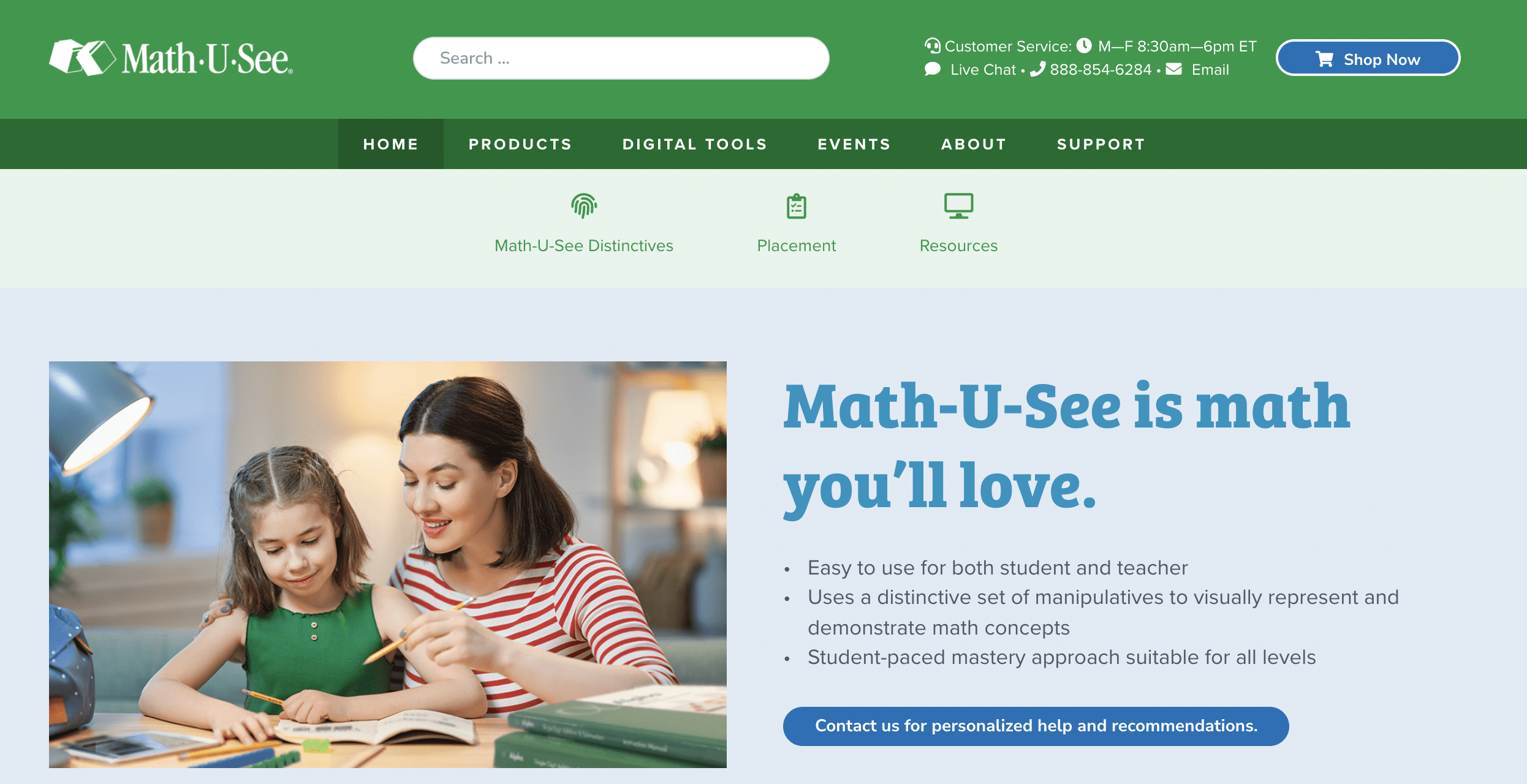
2. Saxon Math
Grades: K-12Benefits:
- Elementary-level manipulatives.
- Designed to align with Common Core standards.
- New homeschoolers can take placement tests.
- Videos and DVDs that help students learn.
Good for: Children who need additional math support and respond well to drills.Price range: Each grade level should cost around $100.Another comprehensive homeschool math program is Saxon Math. Students who are able to learn through repetition may benefit from the drill-based curriculum. 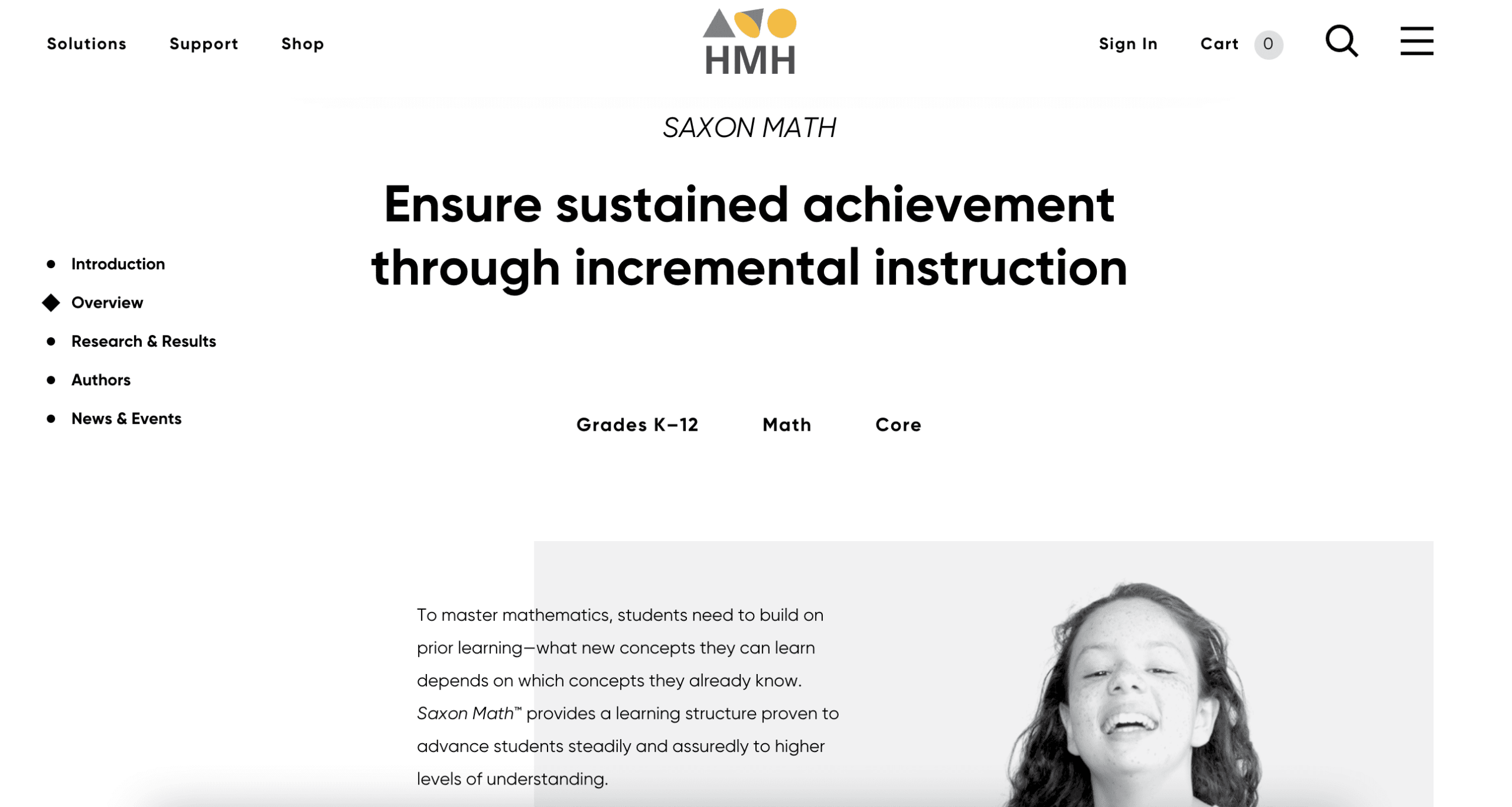
3. Horizons Math
Grades: K-12Benefits:
- An effective lesson format that is short and sweet.
- A spiral approach to a balanced curriculum.
- Visual and independent learners will appreciate the colorful workbooks.
- Students who want a challenging curriculum will benefit from this fast-paced curriculum.
Good for: A child who thrives on challenges and can work independently.Price range: You can expect to spend approximately $90 per math set.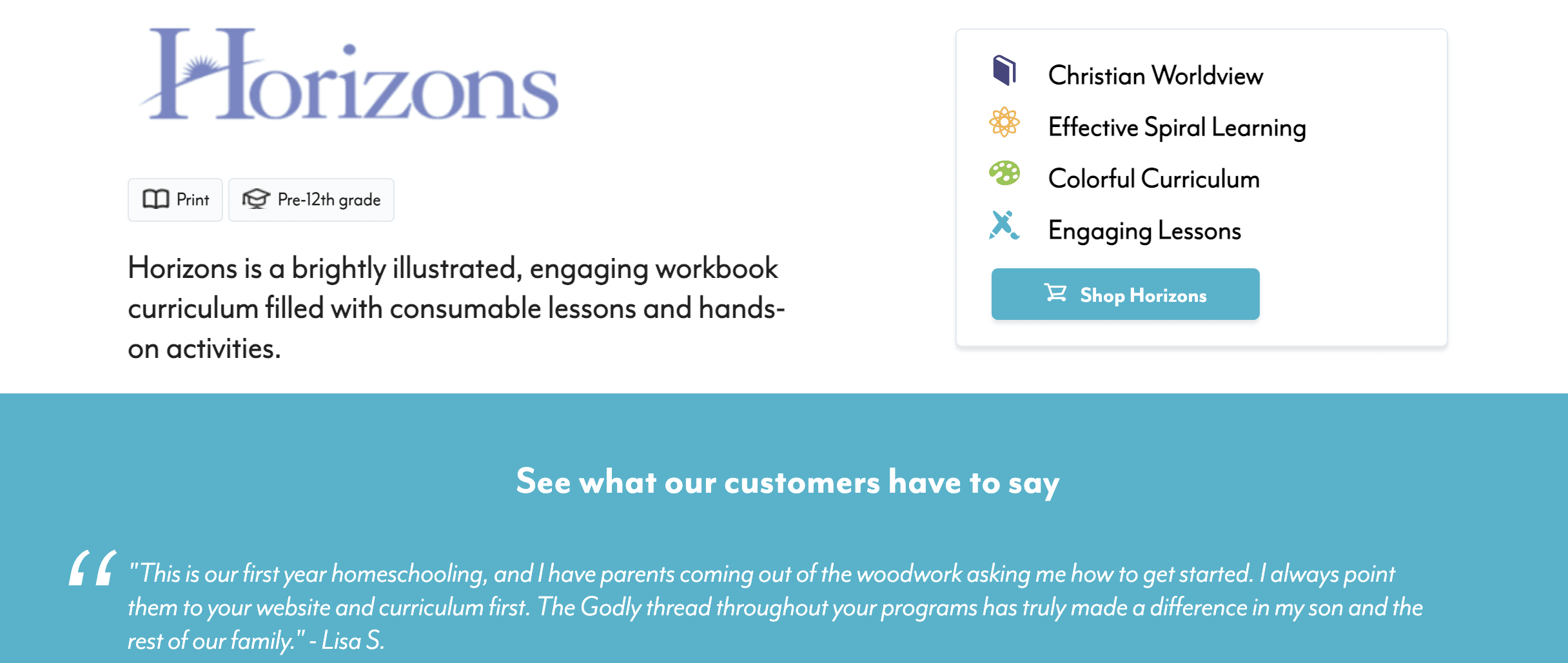
4. Life of Fred
Grades: 1-12Benefits:
- Students and educators can afford this approach.
- Suitable for independent learners who are capable of reading on their own.
- A creative and visual learning format that is entertaining.
- Instead of memorizing math skills, teach conceptual understanding.
Good for: Children who prefer to learn through stories and enjoy reading word problems on their own.Price range: Expect to spend $20 per book.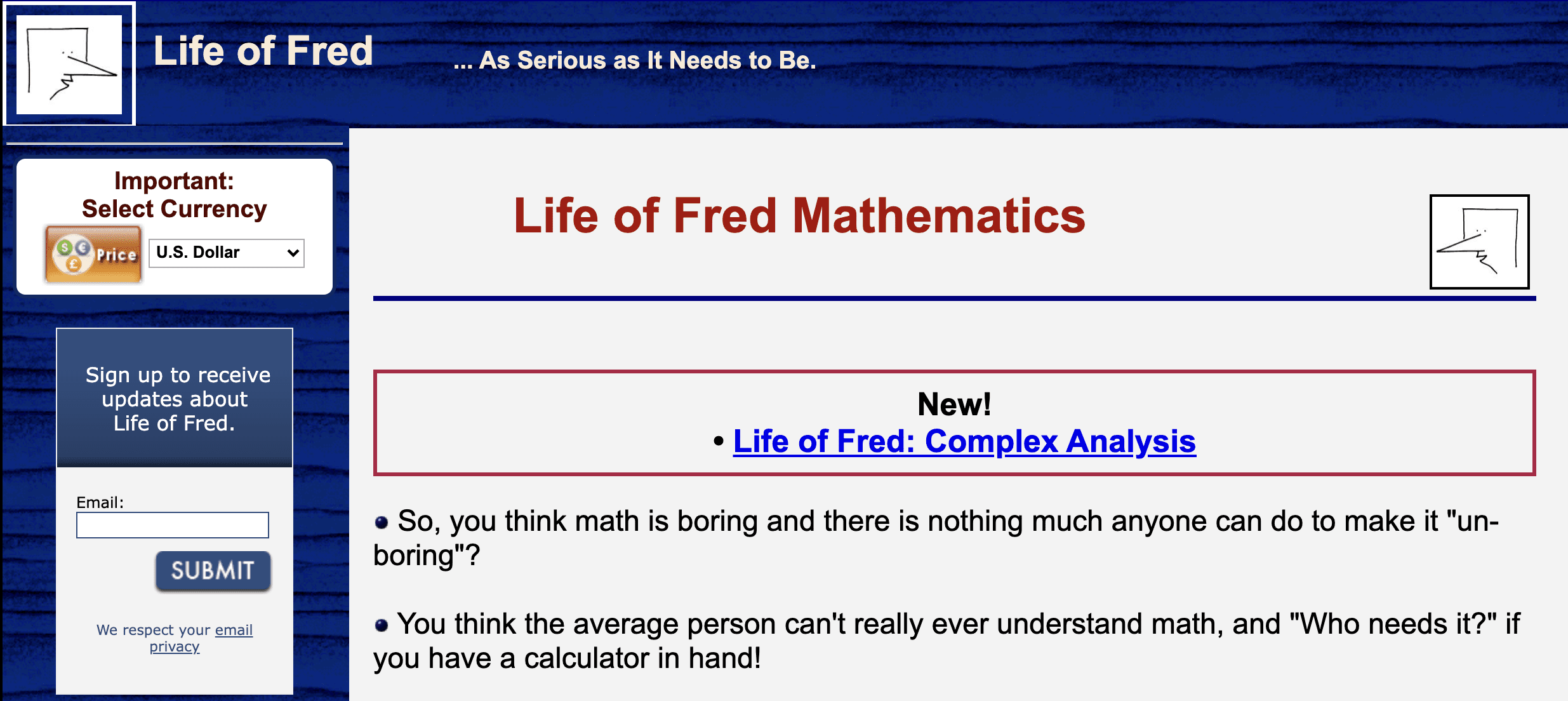
5. Singapore Math
Grades: PreK-8Benefits:
- Workbooks and textbooks at an affordable price.
- Mathematical skills are developed through critical thinking.
- Teach mathematics in its truest sense rather than memorize techniques..
- The goal is for students to reach a level of proficiency that exceeds the national average.
Good for: Children who grasp concepts easily and homeschool educators who can teach without manuals or guides. Price range: Each math set will cost $50.
6. Rightstart Math
Grades: K-12Benefits:
- Developed in accordance with Common Core standards.
- With lots of manipulatives, this is an interactive, hands-on learning experience.
- Critical thinking is encouraged through an inductive approach to learning.
- The goal is for students to reach a level of proficiency that exceeds the national average.
Good for: Children who are visual learners and inquisitive, as well as educators who enjoy active involvement in homeschooling.Price range: Expect to spend $110-$120 for each math set.The Montessori method is incorporated into this math program, which emphasizes hands-on learning. Students are encouraged to find solutions to math problems by experimenting, creating plenty of eureka moments! This approach is called inductive learning.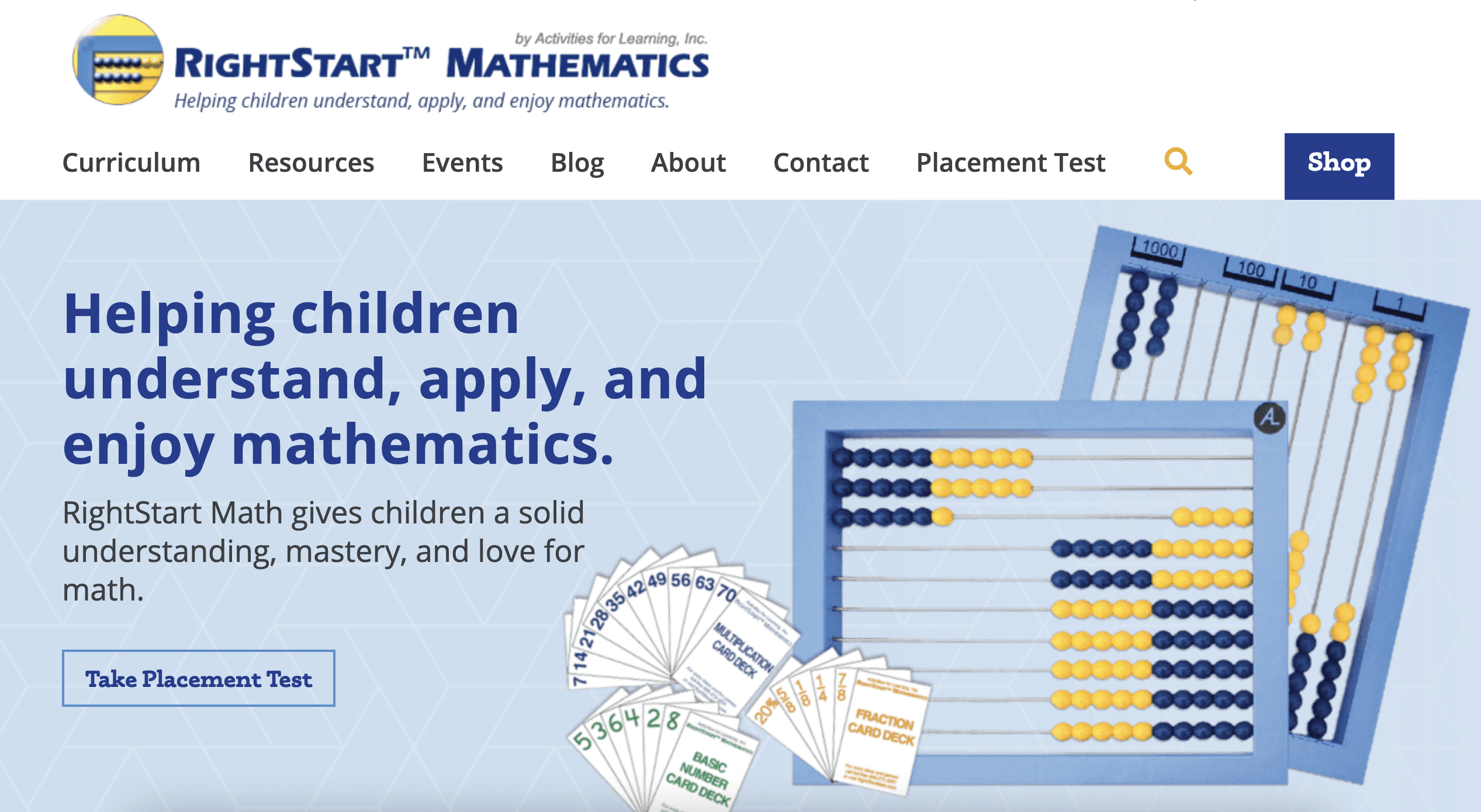
7. Khan Academy
Grades: K-12 (inc. pre-college)Benefits:
- We cover a wide range of math topics in all grades.
- The course is delivered online without manipulatives or workbooks.
- In the form of video tutorials, you’ll find free video lessons and exercises.
- Each math concept is demonstrated in a video.
Good for: Children who are good at following directions and can learn independently for a long time.Price range: Lessons are currently free.
Quick Links:
Conclusion: Best Homeschool Math Curriculum 2024
You and your child can homeschool math successfully even if you don’t have all the resources of a traditional school teacher.You need a math program that engages and inspires your child. Rather than the other way around, you should choose a math tool that adapts to your child’s needs. Here’s a great math program for homeschoolers:
- Attract the attention of your child
- Reward your child for their achievements
- Challenge your child without intimidating him or her
- Every step of the way, it adapts to your child’s learning
In addition, a great math program should provide you with all the resources and support you need as a parent. To assist you, you might find worksheets to print, videos to watch, or even a math tutor online.
Prodigy keeps moving forward
A fun online math game, Prodigy Math Game invites your child to explore the vibrant fantasy world of Prodigy Island. With quests, virtual pets, and wizard battles, your child learns math skills to cast spells (with in-game tips).The Prodigy Math Game is different from other math programs in that it uses algorithms for instruction. Every math question is customized so that your child is able to challenge themselves at their own pace. It also makes learning math fun!



